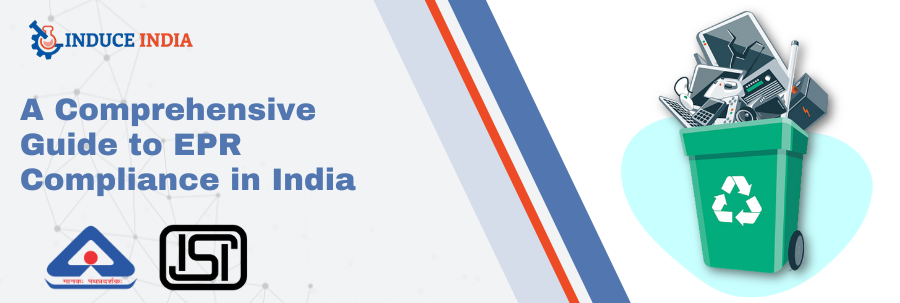EPR (Extended Producer Responsibility) compliance guarantees that organizations take ownership of the environmental effect on their products. Manufacturers’ responsibility increases with EPR compliance. It also aims to decrease the corrosion of the environment by providing strategic environmental protection measures. This also includes starting to the end lifecycle of a product. The strategy also implements new nonmonetary advantages for consumers to encourage the recycling of products. Let’s understand more about EPR compliance in detail.
What is the Purpose of EPR Compliance?
There are many purposes of EPR compliance such as providing guidelines for ethical waste management, implementing routine waste management, and implementing sustainable strategies. Many legal issues were placed to ensure that the business owners take this seriously and follow every guideline. Effective EPR compliance strategies help with hazardous waste management, give sustainable solutions, and use the resources more efficiently. EPR Certification in India can be obtained by understanding and completing all steps with document submission. Its strategy also aims to encourage the recycling of products from their waste in an eco-friendly way.
What are the Benefits of EPR Compliance?
It helps reduce waste, meaning EPR compliance is more focused on recycled, reused, and disposed of products. It also improves resource conservation and keeps an eye on end-to-end usage of resources. It also ensures that the manufacturers take full responsibility for the disposal and recycling of products which also decreases garbage production in society. EPR compliance enables businesses to develop infrastructure to recycle products in a proper and environment-friendly way.
It encourages a shift towards a circular economy and makes producers think about the entire lifecycle of their products. It also promotes the reusing of products and brings a successful design to disposal. Many businesses utilize resources for the reduction of littering. Corporate social responsibility is also a part of EPR compliance.
This also encourages job opportunities and positively affects public health and safety. It also facilitates access to global markets and enables environmentally responsible practices.
What are the Challenges faced by Manufacturers while following EPR Compliance?
There are different challenges faced by Manufacturers such as the absence of awareness which means many organizations are not aware of E-waste rules or guidelines. Collection framework can also be a difficult task for organizations. Equal efforts with approved recyclers or waste administration organizations can assist in this. Delicate data can be lost if electronics are discarded without any checking. Reciprocated inventory management systems can also be a challenge for manufacturers.
What are the Key Components of EPR Compliance?
EPR compliance includes thorough assessments of products, analysis of the materials used, environmental impact of product, recyclability, and more. EPR regulations can be challenging for many manufacturers. Implementing effective EPR compliance strategies is an important part of our society. Continuous monitoring and reporting are essential factors of EPR compliance. It ensures transparency and accountability.
What are the Key Components of EPR Certification?
EPR certification is for Indian and foreign manufacturers or importers of electronic equipment for E-waste management. With the high amount of e-waste generation the disposal of that product is also essential. EPR authorization is needed to ensure that end-of-life EEE (Electrical and Electronic Equipment) is generated from the products of producers.
Documents required for the EPR registration process are copies of agreements, a certificate of incorporation, a list of products, a PAN card, an identity card of the manufacturer, an EPR plan that must have the right details, and a DGFT license. These are necessary documents for the completion of the process.
Conclusion
With the help of EPR compliance manufacturer’s responsibility increases and it also decreases corrosion of the environment by providing strategic environmental protection measures. EPR certification in India can be obtained with the help of document submission and step completion. This also encourages the recycling of products that increase waste production in our surroundings.
EPR compliance enables businesses to develop infrastructure to recycle products and that must be environment friendly. It also enhances job opportunities and positively affects public health and safety. It also facilitates access to global markets and enables environmentally responsible practices. EPR certification is for Indian and foreign manufacturers of electronic equipment for E-waste management. For completion of this process, you can take the help of EPR Consultants in India. They guide and make sure that you achieve this certification.



